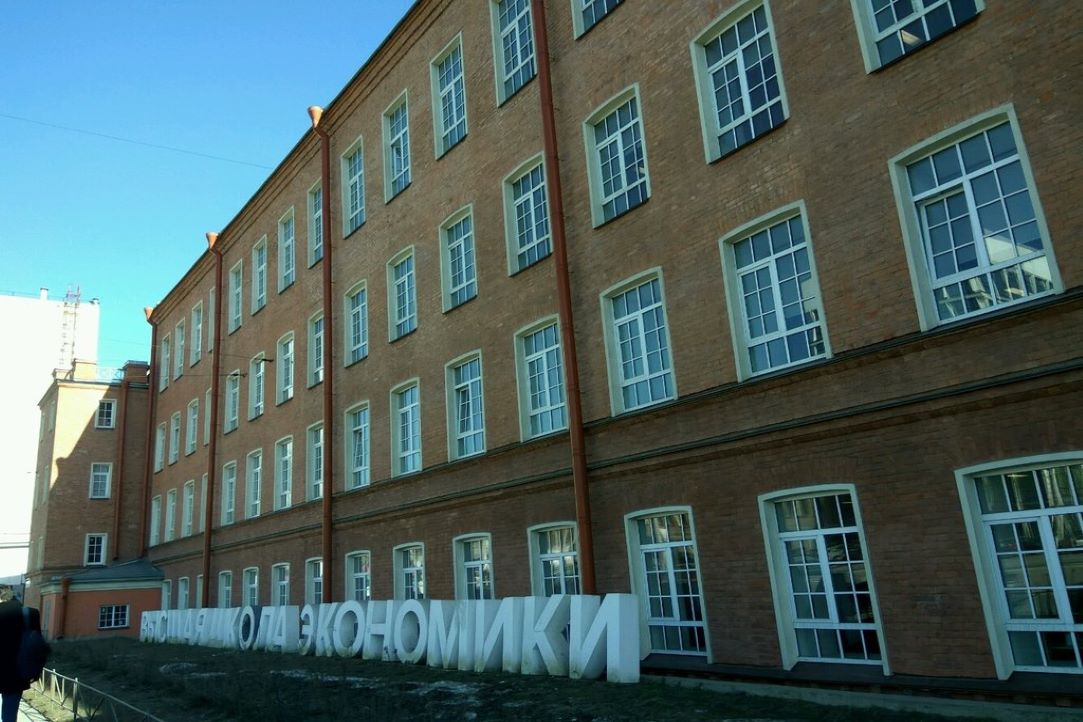Getting to know Andras Gal

First, let me start this interview by introducing the definition of an interesting person. Interesting persons are normally the persons that are passionate about what they are doing, they remain curious about new topics and new environments throughout all their life. They remain humble despite their great accomplishments and discoveries.
Following the latter definition, I choose to present to you the reader, through this interview, Professor Gal, whom I consider to be an interesting person in the latter regards.

Andras Gal
Andras Gal is an international professor at the Faculty of Political Science
I am a lecturer at HSE in the Saint Petersburg campus. I obtained a PhD in political theory. I am Hungarian, although Inever stop moving around the world. During my studies and research years, I spent some time in Poland, in France, in the Netherlands, in Israel to finally land for some time in Russia.
It is such an interesting destination and it happened through CEU that I was able to do a semester in Tel Aviv for research. My research interest in Tel Aviv was constitutionalism. Many experts were located there and it made my choice.
I studied my bachelor and my first master in a state university in Hungary. I did my second master in an American university, CEU, in Hungary as well.
I chose to teach directly in Russia. My first teaching experience was in Russia, in Saint Petersburg thanks to the CEU’s link with HSE SPB. And I chose to stay there.
I chose Saint Petersburg from multiple options and for various reasons. For me, Higher School of Economics was an interesting, at the same time, personal and professional choice. Saint Petersburg is a pretty cool city to live in. In addition, I have a personal and familial history in relation with Saint Petersburg. My mother studied in, back then Leningrad, and I have made some Russian friends that were from SPB during ny studies, what naturally made the ties stronger between me and Saint Petersburg. I also spent some moments of my childhood with Russian friends, Ukrainian friends in Canada.
Saint Petersburg is fan amazing city. It is a privilege to live here. SPB is indeed a special place, even if Budapest feels like home for me, even if Paris and Krakow were super cool, Saint Peterburg stays one of my favorite cities. I am really amazed about how affordable and accessible the culture is in SPB, unlike for instance in Paris. For instance, a concert ticket for five euros, what is indeed pretty amazing. And finally, I was amused by the changes that occurred in the city from 2016 especially with all the coffee shops and how trendy they are!
What I dislike in Russia is the bureaucracy. I consider that it is a feature of the post-socialist countries, it is a part of the historical account. Moreover, I like wine and Russia does not offer the best price-quality wine selection and it is generally horribly expensive.
Hungary is indeed becoming more and more popular on the academic/international scene nowadays. I would explain this recent attention by the country’s Democratic backsliding as well as its not so constructive role in the EU. To name another element, I wish to quot Montesquieu: “happy is the nation if its history is boring”, although saying that now due to Orban’s anecdotal political path, the prime minister inflated his popularity and the one of Hungary. Concerning Budapest, it is clear that the city is different from 2008. The capital is evolving, being much more open. Budapest is cool and it manages to keep its eastern European charm and atmosphere despite the touristic influence. Buda keeps its charming edge. Budapest is sure a city widely visited by tourists, but still real people live, it keeps being a real city in its evolution. Not everything is shiny for tourists, Budapest is fun and cool! Andras emphasizes the fact that you will find many things to do in the Hungarian capital! Budapest is a city where major artists come to perform, where many architectural projects are happening, where the locals are ultra-open and big believers of the “European way of living”. I should mention that the capital’s inhabitants turned out to feel more European than Hungarian, what proves that the city wants to show that Orban is a thing but that Hungary is something else.
Happy is the nation if its history is boring.
Actually, it seems that there are not so many lifestyle differences between Russia and Hungary. Except for the weather, in Hungary, the winter is pretty short. What allows multiple outside activities throughout all the year. I find funny and interesting how Russians are adjusting themselves to the weather, for instance when after the long winter, when the temperature reaches around ten degrees, everyone is outside for a little walk in the park. A personal difference for me is my life situation. Indeed being a teacher is a different lifestyle. And finally, an additional difference between Budapest and Saint Petersburg, is that SPB is less international than Budapest, what helps the foreigners in Russia to turn easily to the local culture, and that it is easier to make Russian friends. In Russia you meet expats that are generally really curious, exciting, more open-minded, more interesting than in other destinations.
The state universities in Hungary and in Russia are actually not so different. The major difference is that in Higher School of Economics, we spend a lot of time in the classroom, we have many courses. While in CEU, the style of his academic program is different in the sense that I spend less time in class but, on the other hand, I spend a lot of time in the library. Usually at CEU I have four really big courses per semester. I have to write all the time what leads to not spending too much time in the classroom, instead spending a lot of time doing work outside of the classroom. Although like in HSE, in CEU, the class size is rather small.
Russian cuisine is pretty surprising. I usually like a rather thick and heavy meal, what makes me appreciating Solyanka much.
What I do not like, however, is the fact that it is a big challenge to get spicy food in Russia. When I want an average spicy dish, I ask for a burning plate. Generally, we can say that for non-Russians, sometimes some dish might need an extra salt, pepper or other spices.
I can have a very basic and daily conversation in Russian! A funny anecdote but I learned the Russian alphabet in metro. As you might know, learning Russian is not an easy task. I started to learn Russian last year despites all of my academic duties such as teaching, finalizing my PhD. It requests talent to know to speak Russian well enough to introduce yourself!
I am pretty impressed by how hard-working, smart, and ambitious are my Russian students from Higher School of Economics. I am really surprised by the difference when I was a student and my current students and how serious they are serious about their studies. I had a “cultural shock” that I experienced when I saw how, in general, Russian students are stressed about their grades.
Interview by

